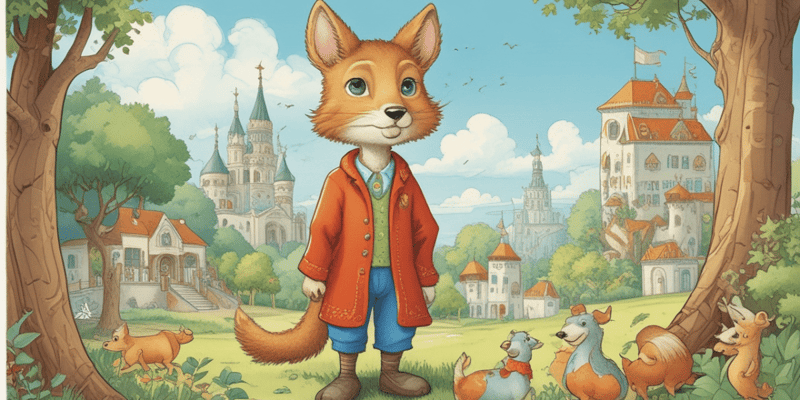9 Questions
What are the three general groups into which adjectives in Russian can be divided?
Attributive, predicative, and substantive
Which of the following is true about the category of animacy in Russian nominal and adjectival declension?
It affects the declension of both nouns and adjectives
How many cases does Russian nominal declension involve?
Six
What is the name of the distinct class of verbs in Russian that pose difficulties for non-native learners at all levels?
Motion verbs
What is the name of the particle used to form the conditional mood in Russian?
Бы
What is the name of the third number in Old Russian that is now lost except for its use in the nominative and accusative cases with the numbers two, three, and four?
Dual
What is the name of the verb aspect used for completed actions in Russian?
Perfective
What is the name of the set of prefixes and suffixes that can be added to words to create new derivatives in Russian?
Derivation
Which of the following is true about word order in Russian?
It is highly flexible due to the inflectional nature of the language
Study Notes
The Grammar of the Russian Language
-
Russian has a highly inflectional morphology, particularly in nominals (nouns, pronouns, adjectives and numerals).
-
Russian literary syntax is a combination of a Church Slavonic heritage, a variety of loaned and adopted constructs, and a standardized vernacular foundation.
-
Various terms are used to describe Russian grammar with the meaning they have in standard Russian discussions of historical grammar.
-
Russian also places the accusative case between the dative and the instrumental, and in the tables below, the accusative case appears between the nominative and genitive cases.
-
Nominal declension involves six main cases – nominative, genitive, dative, accusative, instrumental, and prepositional – in two numbers (singular and plural), and absolutely obeying grammatical gender.
-
Old Russian also had a third number, the dual, but it has been lost except for its use in the nominative and accusative cases with the numbers two, three, and four.
-
Definite and indefinite articles (corresponding to 'the', 'a', 'an' in English) do not exist in the Russian language.
-
The category of animacy is relevant in Russian nominal and adjectival declension.
-
Russian uses three declensions: first declension, second declension, and third declension.
-
Adjectives may be divided into three general groups.
-
Grammatical conjugation is subject to three persons in two numbers and two simple tenses (present/future and past), with periphrastic forms for the future and subjunctive, as well as imperative forms and present/past participles.
-
The past tense is made to agree in gender with the subject.Russian Verb Conjugation: A Detailed Overview
-
Russian verbs have three moods: indicative, conditional, and imperative.
-
The present tense of the verb "to be" is rarely used in modern Russian and has mostly been replaced by the third-person singular form "есть".
-
Verbal inflection is simpler than in Old Russian and has lost the aorist, imperfect, and pluperfect tenses.
-
Most Russian verbs come in pairs, one with an imperfective aspect and the other with a perfective aspect, usually formed with a prefix.
-
Past tense verbs in Russian are gender-specific and vary depending on the gender of the subject.
-
Russian adjectival participles can be active or passive and have perfective or imperfective aspects.
-
Adverbial participles in Russian express an earlier or simultaneous action providing context for the sentence in which they occur.
-
Verbs of motion in Russian are a distinct class of verbs that pose difficulties for non-native learners at all levels.
-
Prefixes can be added to motion verbs to form new aspectual pairs that gain spatial or temporal meanings.
-
Russian verbs can form two forms of the future tense: simple and compound.
-
The conditional mood in Russian is formed by adding the particle "бы" after the word marking the supposed subject.
-
The imperative mood second-person singular is formed from the future-present base of most verbs by adding -и, -ь, or -й.
-
There are five irregular verbs in Russian.Overview of Russian Grammar
-
Russian verbs are inflected for tense, aspect, mood, person and number.
-
Russian has two aspects, perfective and imperfective.
-
The perfective aspect is used for completed actions, while the imperfective is used for ongoing or repeated actions.
-
Russian nouns are inflected for case, gender, and number.
-
There are six cases in Russian: nominative, genitive, dative, accusative, instrumental, and prepositional.
-
Russian adjectives agree with the noun they modify in gender, case, and number.
-
Russian has two participles, the present and past participles.
-
Russian has a set of prefixes and suffixes that can be added to words to create new derivatives.
-
Russian has considerable latitude in word order due to the inflectional nature of the language.
-
Russian allows constructing sentences without subject, which are called null-subject sentences.
-
Multiple negatives are compulsory in Russian.
-
Russian has several types of coordinations, including conjoining, oppositional, and separative.
Put your Russian language skills to the test with this quiz on Russian grammar! Test your knowledge on the highly inflectional morphology of Russian nominals, its unique syntax, and the various cases and declensions involved. Challenge yourself with questions on the intricacies of Russian verb conjugation, including its three moods, perfective and imperfective aspects, and irregular verbs. You'll also be tested on your understanding of Russian nouns, adjectives, participles, and word order. See how well you
Make Your Own Quizzes and Flashcards
Convert your notes into interactive study material.





